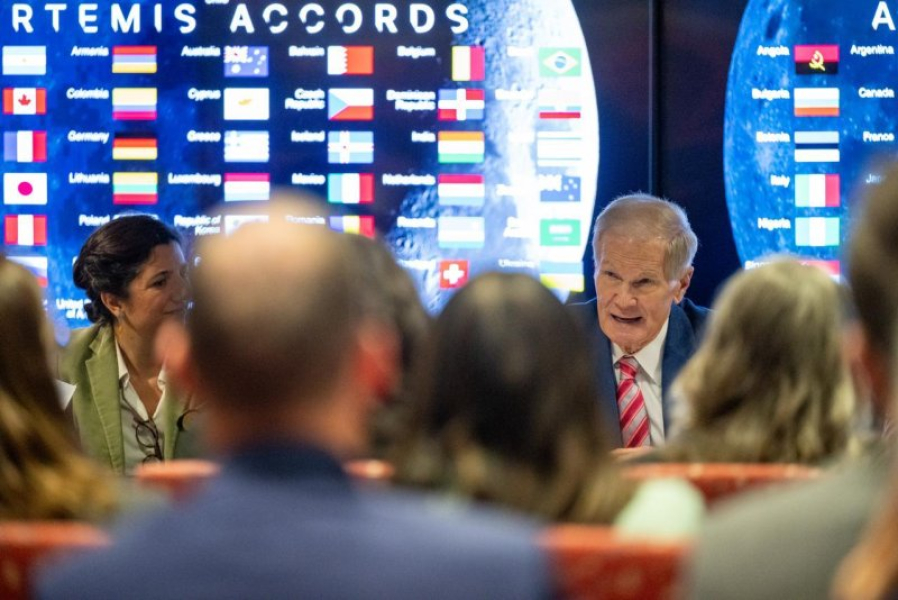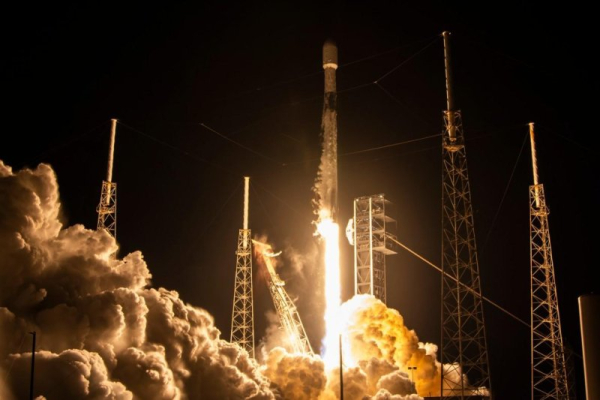
Chile is nearing the completion of one of the largest scientific projects in its history: the first National Space Center (CEN), which is 85% complete.
The first part is expected to start operating in December, which will be a landmark event for the country opening up the satellite manufacturing market and independent development of space technologies.
This initiative is part of the National Satellite System of Chile and aims to strengthen the scientific and technological sovereignty of the state. The project is led by the Chilean Air Force in collaboration with the Ministry of Defense and the Ministry of Science, Technology, Knowledge and Innovation.
During a recent visit to the construction site, Defence Minister Adriana Delpiano and Science Minister Aldo Valle highlighted the strategic importance of CEN and its contribution to the development of research, national defence and innovation.
The CEN facility will occupy more than 62,000 square feet (5,000 square meters) and will consist of four main areas. Among them is a 6,450-square-foot (600 square-meter) clean room for satellite manufacturing with strict environmental control standards. There, engineers plan to assemble seven microsatellites weighing 22.5 kilograms (50 pounds) and one Earth observation satellite weighing about 200 kilograms (440 pounds), all designed by Chilean experts.
The center will also include a data science lab with high-performance computing and artificial intelligence capabilities, a mission control center for autonomous satellite operations, and an innovation lab to support technology projects involving startups and universities.
Additionally, an 8,600-square-foot satellite integration facility will be created that will be able to operate up to eight devices simultaneously.
According to CEN Director Colonel Hector Contreras, the center plans to employ about 120 people, 30% of whom will come from academic institutions.
“It will be a center open to universities and research institutes, with all the necessary capabilities for national development,” Valle said.
The center will mark a milestone in inclusive technologies with the arrival of STELARBOT, a robot developed by the University of Santiago in collaboration with the Teleton Institute and the Chilean Air Force.
The remote-controlled robot will be able to be controlled by people with disabilities using an interface based on cameras, sensors and artificial intelligence.
“STELARBOT will provide an opportunity for people with disabilities to interact with the center and its visitors, giving tours and explaining current technological developments,” said Lorena Delgado, director of the Entrepreneurship and Innovation Lab at the University of Santiago.
She noted that CEN “will become a major hub for innovation in the region” and praised its accessibility to civil society and the educational sector.
The project is part of a broader national concept to create a network of space centres across the country.
Delpiano announced plans to establish a satellite center in northern Chile that would provide communications for remote areas, as well as another in Punta Arenas in the far south of the country that would specialize in radar satellites that can operate in difficult weather conditions.
These centres will enable Chile to establish itself as an emerging player in the Latin American space industry.
“We are at a critical stage in the modernization of the state and the integration of science, defense and the economy,” Valle noted.
The opening of CEN in December will not only be a technological milestone, but also open a new chapter for research, innovation and talent development with applications in mining, agriculture, environmental monitoring and national defense, officials said.
Sourse: www.upi.com





